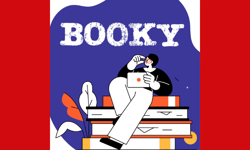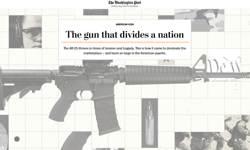"God save you from another quango if you can possibly avoid it."
That single phrase was enough to raise smiles from delegates at the Society of Editors (SoE) annual conference, and it came from the undoubted star of the show: seasoned ‘Rumpole of the Bailey’-style politician Kenneth Clarke.
Okay, he wasn’t Lord Justice Leveson, the man charged with deciding the future of press regulation with his ongoing inquiry into media standards due to report later this year.
But Clarke does hold the influential post of justice secretary and is a leading cabinet member whose experience carries a substantial element of respect – albeit entwined with his own brand of controversy.
And if Clarke’s speech to the November conference held at the Runnymede-on-Thames Hotel in Egham, Surrey, was anything to go by, then government control of the media looks pretty unlikely.
Indeed, while criticising phone-hacking, Clarke candidly spoke up for self-regulation, but only if whatever organisation was improved or created to oversee the fourth estate’s behaviour developed “some teeth”.
"If we're going to have self-regulation, it must work,” warned Clarke, “it must have some powers, and every section of the press must agree to subject itself to the self regulatory body, whatever it calls itself.
"Its regulations and findings must have some force ... some more convincing teeth than it is seen to have at the moment. That is very broadly where we should go."
Future of the PCC
Clarke’s stance was perhaps understandably echoed by former Conservative cabinet member David Hunt – now Lord Hunt of Wirral – who attended the conference in his new role as chairman of the much-maligned Press Complaints Commission (PCC).
“I am strongly opposed to any form of state intervention,” said Hunt. “I just don’t want our great asset – the freedom of the press – to be subjected to the whim of politicians.”
In some ways, it doesn’t matter what Lord Hunt wants, because unless he puts forward a convincing alternative to the PCC, or at least a more hard-nosed way for it to curb the worst behaviour of the national tabloids, he’s unlikely to reach a first anniversary in his role.
The PCC’s extinction was the obvious answer according to the refined comments from Alan Rusbridger, the Guardian’s editor, who sat on a discussion panel on the main conference day to debate the issue.
"The regulator was shown not to be a regulator," said Rusbridger with a sneer that was disliked by fellow panel member Neil Hodgkinson, editor of the Hull Daily Mail.
“For those of us in the regional press, the PCC works perfectly well,” said Hodgkinson defiantly, and his counter-intuitive line was picked up by other delegates speaking from the floor.
South Wales Argus editor Gerry Keighley called for regional and local papers to be regulated separately from the nationals because “the two sectors behave in completely different ways”.
He said: “Locals serve the community but nationals don’t. We have a different agenda from the nationals and survival is the biggest issue we face.”
There were more comments but little new ground as delegates agonised over the sins of some national tabloids and fretted over what this meant for the media industry.
By the time black ties were donned for the glitzy gala dinner on the conference’s final evening, many delegates had tired of the subject, with some indicating that the SoE’s agenda should have made some room for other pressing industry matters.
Pointers from Dominic Grieve
But few editors expected any mercy during an after dinner speech from attorney general Dominic Grieve MP, who earlier this year fined the Daily Mirror £50,000 and the Sun £18,000 for contempt of court for their reporting of the arrest of Christopher Jefferies.
Jefferies, the landlord of Bristol murder victim Joanna Yeates, was quickly found entirely innocent of any involvement, but not before he was pilloried in the press – later receiving public apologies and ‘substantial’ libel payouts from the Sun, Daily Mirror, Sunday Mirror, Daily Mail, Daily Star, Daily Express, Daily Record and the Scotsman.
But while Grieve was critical of how the national press had lost its sense of restraint in such cases, he too appeared to believe in self-regulation – if only a balance could be made between privacy rights and the freedom of expression.
Citing this year’s SoE conference title of ‘Magna Carta II – A modern Media Charter’, Grieve said: “You didn’t invite me here to make pronouncements on press regulation, but if anyone was to ask for my opinion on a future charter, I would say that there could be no better place to start that Articles 8 and 10 of the European Convention on Human Rights.”
This had delegates furiously checking palmtops for the detail of these decrees: Article 8 protecting citizens’ ‘private and family life, home and correspondence’; counter-balanced by Article 10 protecting the ‘right to freedom of expression’, including the freedom to ‘receive and impart information and ideas without interference by a public authority’.
If Grieve’s advice was too tenuous, then the last word on regulation should go to someone who actually spoke first at the conference, and a man who holds double sway as another former Conservative cabinet member and current chairman of the BBC Trust.
Chris Patten – now Lord Patten of Barnes – who delivered the SoE Lecture 2011 on the opening night, said: “The vigour of the tabloids is an important part of the liveliness of our democracy.
“Free speech, and therefore that vitality, would truly be damaged if a single group of people, beholden to and perhaps even appointed by politicians, were to have the power to decide what should or should not be published.
“Statutory regulation of the press would in my view be more than wrong-headed; it would pose a real danger to public discourse that underpins our democracy.”
As one senior editor muttered during the applause: “For God’s sake, let’s hope Lord Leveson was listening to that.”
What to do about the regionals?
There was sudden urgency on the press bench at conference on Monday 14 November when media journalists’ mobiles started buzzing with texts tipping them off on yet more job cuts in the regions.
But the breaking news did not only reveal ‘45 jobs to go’ at Trinity Mirror’s Birmingham-based subsidiary, BPM Media Ltd.
This time, the redundancies were coupled with the closure of three of the Midland subsidiary’s established weekly newspapers – the Chase Post, the Stafford Post and the 141-year-old Sutton Coldfield News.
The next coffee break had delegates lamenting the news, and the conversation turned to the fate of Northcliffe’s south east business following the Office of Fair Trading effectively blocking the sale of its Kent Regional News & Media division and its seven weekly titles to local rival, the KM Group.
“That effectively means two papers will be closed within weeks,” warned one editor in the know, effectively predicting another round of closures. Sure enough, the end of the East Kent Gazette and Medway News was announced less than a fortnight later on 25 November.
These actual and foretold closures prompted one delegate in particular to collar anyone he could to explain his positive theory that now was the time for a radical change in the ownership of regional titles.
Neil Fowler – former editor of the Lincolnshire Echo, Derby Evening Telegraph, Newcastle Journal and the Western Mail – told me: “We need to push for the return of local newspapers to independent ownership.
“I’m talking about patriarchal and family-based firms that are embedded in the communities, or local trusts and consortia whose focus is on news and information that assist neighbourhoods, not profits and dividends that drain them.”
Fowler has spent the last year as a Guardian research fellow at Nuffield College, Oxford, developing these thoughts, and his detailed article on the subject appears in ‘Is There a Better Structure for News Providers’ published by the Reuters Institute for the Study of Journalism.
“It’s almost become my personal campaign,” added Fowler, “because I believe there are people and structures out there that can run newspapers, perhaps not pocketing huge rewards, but without going under.
“You only have to look at what Ray Tindle has done [Tindle’s group owns 200-plus small weeklies and has no debt] to realise that there could be a future, and there are others doing or thinking of doing the same thing on a small scale.”
Fowler wasn’t the only delegate with such revolutionary thoughts at conference.
Newspaper consultant Jim Chisholm – a regular contributor to InPublishing – had been commissioned by the SoE to analyse a survey of editors’ attitudes, and this was unveiled on the final morning of conference.
The survey’s statistics were interesting if predictable – suggesting, for example, that newspapers’ editorial staff numbers had fallen by an average of 29% since 2007.
But it was some of the comments from editors when asked about ‘the most positive things that could happen in the next five years’ that really caught my eye.
“The end of the corporate era and the return of regional media to private ownership,” said one respondent succinctly.
Another went into more detail: “Entrepreneurs coming along to start newspapers where there are gaps in the market, ie, where newspapers have closed and gone weekly.”
And a third was even more effusive: “Global corporations will lose interest in printed media as revenues continue to decline and margins are narrowed.
“That will leave the door open for genuinely local subsistence publications to emerge, like mouse-like mammals under the feet of the dying dinosaurs.”
It wasn’t the survey’s most popular theme, but it was certainly a repeated forecast – and one that will fuel the likes of Fowler and others in their quest for the survival of local and regional newspapers.










